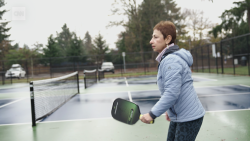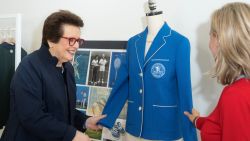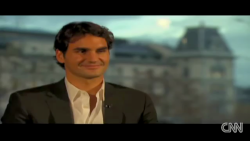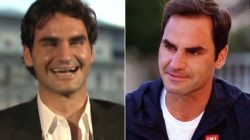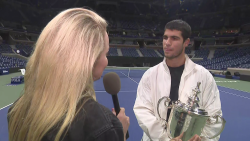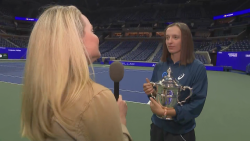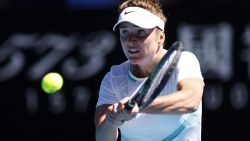When Novak Djokovic was just seven years old, he’d make his own Wimbledon trophy and imagine he was the best tennis player in the world.
As the Serb speaks about the journey he’s been on in the intervening 26 years, even he sounds somewhat incredulous at the point he’s arrived at. On Monday, Djokovic broke Roger Federer’s all-time record for the most weeks spent as the men’s world No.1, topping the ATP rankings for a combined 311 weeks.
Of all his accomplishments, which include 18 grand slams, five ATP Finals titles and numerous other records, Djokovic ranks this one among his favorites.
“Well, it’s just happiness, joy,” the 33-year-old tells CNN’s Christina Macfarlane of his emotions. “I mean, I am so thrilled and proud, very proud [of] this achievement and it’s kind of like a crown of all the achievements that I had in last 15 or 15 plus years of [my] professional tennis career.
“On this special day, obviously, I go back in time and remember my humble beginnings, when I grabbed a racquet for the first time and the way I fell in love with the sport and the support that I had from my parents and people that helped me realize my dream. So, of course, I’m overjoyed with all the emotions.
“I think the reason for that is there are so many people here in Serbia where I am at the moment that have contacted me, that have congratulated me, that it made me feel that this is a celebration o the country and the city and not just my own.
READ: Novak Djokovic – How a kid from war-torn Belgrade beat the odds

“So I feel that has allowed me to more intrinsically and more profoundly live these emotions, because I woke up today and it was kind of, you know, any other day where I stand up and I work and I go through my own routines and I didn’t feel the significance of it yet until I took my phone, until I started meeting people and then I realized: ‘Wow, it is a really special day and I’m very thankful for it.’”
Djokovic credits much of his success to his parents’ support and resilience. Despite growing up in war-torn Belgrade, Serbia, they still found a way to provide him with everything he needed to follow his dream of becoming a professional tennis player.
Looking back, if Djokovic could speak to his seven-year-old self – the boy who made his own Wimbledon’s winners’ wall in his bedroom – what would he tell him?
“That dreams are achievable,” he says. “Everything is possible if you dream big. You should dare to dream big, you shouldn’t get discouraged by what society or the surroundings are telling you if it’s opposing some of the big dreams that you are nurturing, that might make you happy, that really bring joy to you when you think about that, when you dream them.
“I’ve been so fortunate in my life to have parents that were very strong in the midst of the war and hardship that we were living through during the 90s and have their unconditional love and support to to play the sport that wasn’t even a tradition in our family or in our country.
“It was very expensive sport, but somehow they managed to do it, to actually buy me racquets and I could have a coach and I could have conditions that were fair enough or good enough for me to grow up to be a professional tennis player. So dreams do really come true.”




